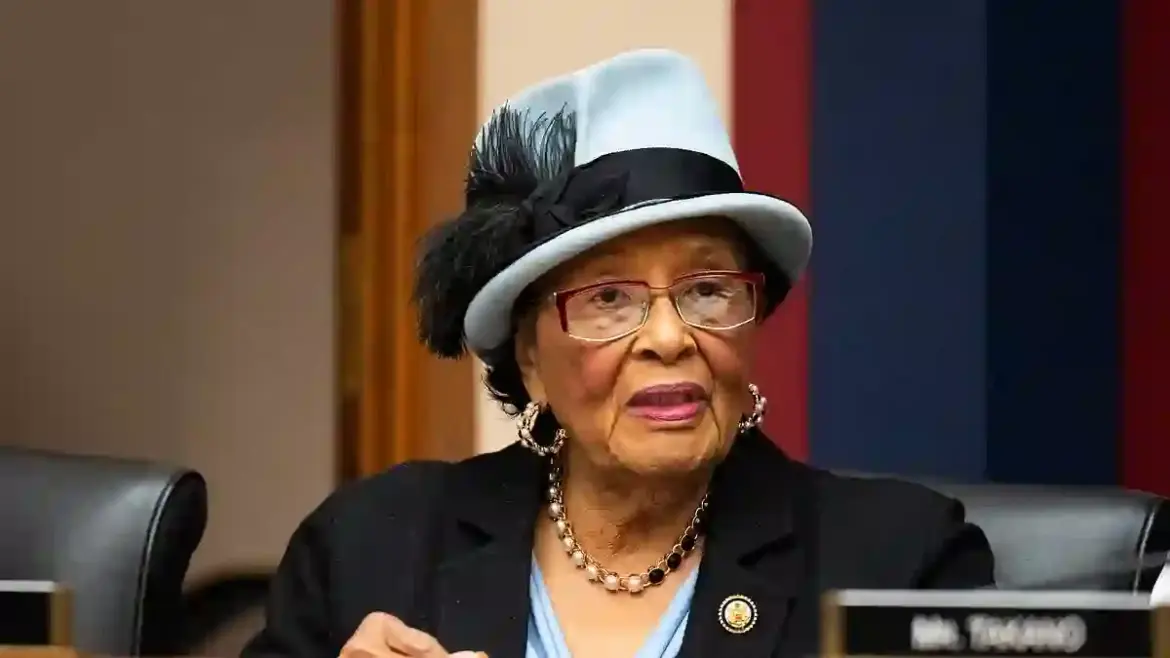In the wake of a shocking murder on a Charlotte light rail, local leaders are weighing in on the role of the city’s cashless bail system. Democratic Congresswoman Alma Adams, who represents Charlotte, has defended the policy despite recent criticism from former President Donald Trump.
The debate reignited after a horrific attack on August 22, when 23-year-old Ukrainian immigrant Iryna Zarutska was brutally stabbed by a man sitting behind her on the train.
The alleged assailant, 34-year-old Decarlos Brown, had a lengthy criminal record and had been arrested multiple times prior to the attack.
The Brutal Incident on Charlotte’s Light Rail
Videos of the incident show Zarutska seated quietly during her commute before Brown allegedly began stabbing her repeatedly.
At one point, he can be seen pacing up and down the train, blood dripping from the knife he wielded.
Police quickly apprehended Brown at the scene.
Brown’s record includes 14 previous arrests, and many of those resulted in his release on the city’s cashless bail system.
Trump immediately condemned the situation, stating, “Criminals like this need to be locked up.
What the hell was he doing riding the train, and walking the streets?”
Alma Adams Pushes Back on Trump’s Claims
Rep. Alma Adams argued that Trump’s criticism oversimplifies the issue.
“You can’t solve everything by putting people in jail,” she told the Daily Mail.
“We can’t jail our way out of some of the situations that are going on.”
She emphasized the importance of addressing mental health concerns, particularly for repeat offenders like Brown.
“We can’t overlook the illnesses that people have, and especially mental illness.
If there are mental health issues, we need to put more support there, which we have not done.”
Adams maintained that incarceration alone would not have prevented this tragedy, framing it as a failure to provide adequate mental health services rather than a flaw in the bail system.
North Carolina’s Investment in Mental Health
For several years, North Carolina Democrats have championed significant mental health funding.
The state’s 2023–2025 budget included $835 million for mental health programs, including nearly $100 million specifically for supporting formerly incarcerated individuals.
At the time, these allocations were hailed as historic.
Adams noted that she is currently reviewing how some of this funding is being used.
“There are lots of services that can be provided for people that we need, that some of them are being covered, but a lot of the dollars are being filtered out,” she said, without offering further details.
Balancing Criminal Justice and Mental Health
When asked about Brown’s 14 previous arrests, Adams reiterated the need to consider the broader picture.
“Violent criminals, yes, we need to address that, but we also have to address a lot of what’s going on today.
The mental health is connected, it seems to me. So we can’t address one without the other.”
She described the murder as “a terrible situation” and said she has prayed for Zarutska and her family.
At the same time, Adams criticized Trump for politicizing the case, noting that his comments, coming months after the August stabbing, are likely motivated by political considerations.
